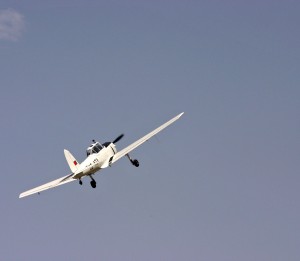 Suddenly, the pilot’s plane started descending at an incredible speed. He pulls up to avoid crashing. No response. He pulls up harder. Still nothing. Then the ground consumes him.
Suddenly, the pilot’s plane started descending at an incredible speed. He pulls up to avoid crashing. No response. He pulls up harder. Still nothing. Then the ground consumes him.
Our natural reaction in emergency situations is to fight them: whether it’s a plane that has stalled, a car that is sliding out of control on the ice, or putting more constraints on our teenager after a mistake. These reactions don’t fix the problem. But instead of reevaluating our strategy, our natural response is to try again with more vigor. These situations require a different response that first returns you to a point of influence — pointing the plane at the ground to increase the airspeed over the wings, turning into the slide to regain traction, or commiserating with your teen in the mistake to maintain a relationship.
This response is counterintuitive, therefore it requires conscious forethought before the situation occurs to behave in this way. It requires putting the emotions of the situation on pause and recognizing what is really happening. The problem is not that we are falling out of the sky, the problem is that we don’t have enough lift from our wings. Restore the lift and you restore control. Finding this solution requires challenging how we perceive the problem and requires regaining control before influencing this.
This is a key response that leaders must exercise in times of difficulty. In order to have influence, we must have some mechanism of control. The art of leadership is recognizing when the natural reaction is the wrong one, and working to reestablish a mechanism for influence.

Leave a Reply